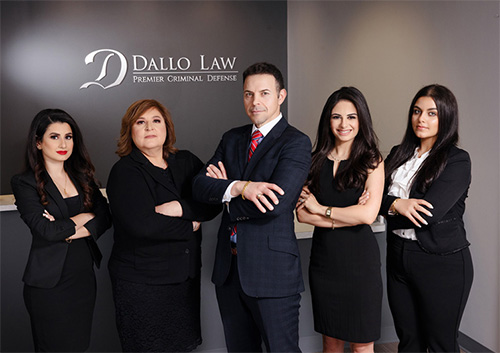Gun crimes can result from a minor incident escalating quickly. Other times, a single individual could be charged with multiple gun crimes stemming from a series of events, increasing the potential for multiple convictions and penalties.
Potential penalties associated with gun crimes are extremely dependent on the facts of any given case, including an accused’s state of mind, whether the gun was fired, and whether someone was injured or killed. One of the more common gun crimes prosecuted under the Michigan Penal Code is “Pointing or Aiming a Firearm at Another Person,” which requires a defendant to have intentionally, but without malice, pointed a gun at another person.
Michigan courts have defined malice within the context of a particular crime. As a general matter, malice refers to a malicious mind state and requires proof that a defendant intended to cause harm.
Michigan Intentionally Pointing A Firearm Without Malice Attorney
If you have been arrested for intentionally pointing a firearm without malice, it is in your best interest to obtain legal counsel as soon as possible. J. Dallo at Dallo Law, P.C. is a skilled defense lawyer in Michigan who can be your advocate in the courtroom and provide you with proper advice. His number one priority is minimizing the negative impact this charge has on your present and future.
Do not wait any longer. Call (248) 283-7000 to arrange a consultation with Dallo Law, P.C. today. Dallo Law, P.C. practices criminal defense throughout the greater Oakland County and Macomb County area including Bloomfield Hills, Pontiac, Troy, Rochester, West Bloomfield Township, Warren, Sterling Heights, and Utica.
Information Center
- Elements Of Michigan Law
- Penalties For Pointing Or Aiming A Firearm At Another Person
- Defending Against A Charge Of Pointing Or Aiming A Firearm At Another Person
- Additional Resources
Elements Of Michigan Law
The commonly charged gun crime Pointing or Aiming Firearm at Another Person can result in a conviction if a prosecutor can show that a defendant did the following:
- Intentionally, but without malice;
- Points or aims a firearm;
- At or toward;
- Another person.
Oftentimes, this charge arises from situations wherein a person is unclear about how a gun can be used in self-defense, defense of another, or defense of property. Although having a license to carry a firearm can sometimes be helpful for defendants facing gun charges, a license to carry is not a license to use the firearm as desired. If it is alleged that the accused intended to point or aim a firearm, the defendant, regardless of license status, can be found guilty of this particular offense.
The statute does not apply to peace officers, including police and other members of law enforcement, when carrying out the duties of a peace officer. In other words, the statute could apply to an off-duty member of law enforcement but not one who points a gun in service of their employment duties.
Penalties For Pointing Or Aiming A Firearm At Another Person
“Pointing Or Aiming A Firearm at Another Person” is a misdemeanor offense. Resulting penalties can include up to 93 days in jail and fines up to $500.00. In addition, those convicted will most likely lose their right to possess a gun or their license to carry a firearm legally. Alternatively, a conviction could result in loss of the ability to apply for a license to carry a gun.
Factors that impact actual sentences include:
- Prior criminal history, old and recent;
- Any same or similar offenses on criminal record, old and recent;
- Whether the offense is a first offense;
- Circumstances and facts of the case; and
- Discretion of the court.
The above factors can sometimes mitigate a defendant’s circumstances, making it possible to avoid serving jail time and paying significant fines. Probation is often an alternative to prison time. Perhaps the most significant factor is whether the offense is the only one being prosecuted or whether it is one of several offenses in question. If the offense is one of several and the defendant is convicted, a potential sentence may involve long periods in prison and higher fines. No matter the legal penalties, convictions can also result in longer-term social consequences, including difficulty finding housing and stable employment, and the inability to participate in gun clubs and hunting.
Defending Against A Charge Of Pointing Or Aiming A Firearm At Another Person
Criminal defense attorneys help their clients achieve the best outcome possible by thoroughly evaluating the specific facts and crafting solid defenses against the charges that these clients face. Defenses to firearms charges often include:
Lack of Intent: A prosecutor must prove that a defendant had the necessary intent to point or aim the gun. If a particular situation arose out of misunderstanding or the defendant was observed with the gun in the wrong place at the wrong time, the defendant could prove they lacked intent to commit the crime.
Defense of Self or Another Person: Gun charges can be successfully undermined if the defendant proves that their actions resulted from self-defense or the defense of others. The defendant’s actions must be reasonable under the circumstances. The defendant must prove that they honestly and reasonably believe using force was necessary to prevent imminent harm. This defense will not apply if the defendant participated in illegal activity when the firearm was pointed or aimed at another person.
Constitutional Violations: The ultimate job of a criminal defense attorney is to protect the accused’s constitutional rights. Sometimes the facts show that constitutional violations occurred on the part of law enforcement or the prosecution, including improper searches and seizures, improper questioning, or procedural violations at court hearings. When such violations occur, they may serve as a defense against the charges that the accused is facing.
Assertive Negotiation: When facts and evidence against a defendant are strong, the best defense might be strong advocacy and negotiation. Defendants who have little or no criminal history or no same or similar offenses on their records generally have a much easier time having their charges reduced or dropped. Other times, a defense attorney and the prosecutor can negotiate a lesser sentence with fewer long-term consequences.
Regardless of the defense strategies used, seeking the help of a criminal defense attorney as early as possible post-arrest is the best way to secure the best outcome possible for gun charges.
Additional Resources
Criminal Jury Instructions 11.23 | Michigan Supreme Court — Juries are given rules and guidance called “jury instructions.” These jury instructions provide significant opportunities for judges and defense attorneys to help the jury apply the law to the facts of a given case.
Michigan Self-Defense Act | Michigan Legislature — Understanding self-defense laws can lead to a successful defense against gun charges. Under Michigan’s Stand Your Ground law, a person can defend themselves or others with equal force. Defense of self or others is a possible defense against many gun charges, including “Pointing Or Aiming a Firearm at Another Person.”
Bloomfield Hills Intentionally Pointing A Firearm Without Malice Lawyer | Oakland County, MI
If you have been accused of intentionally pointing a firearm without malice in Michigan, contact Dallo Law, P.C.. Attorney J. Dallo at Dallo Law, P.C. has represented many individuals facing firearm and weapon crimes and aggressively works to achieve the best possible outcome for his clients.
The stakes are high when it comes to firearm charges and you deserve to work with an attorney who understands this system. Call Dallo Law, P.C. today at (248) 283-7000 to set up your first consultation of charge. Dallo Law, P.C. accepts clients throughout the greater Oakland County and Macomb County area including Sterling Heights, Bloomfield Hills, Birmingham, Rochester, Rochester Hills, Novi, and Clinton Township.









